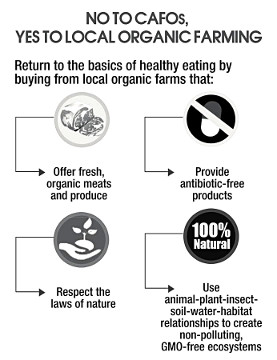As a country, the US’s greatest privilege has always been the land it occupies. The vastness and diversity of ecosystems creates boundless opportunity for travel, cultural development, food security, and natural beauty. However, the history of the US is also filled with exploitative incidents of genocide, environmental destruction, and suffering of the vulnerable.
Our current government administration seeks to continue our traditions of eco-murder and xenophobia with extra fervor- see current immigration policies and the rollbacks on the endangered species act, air pollution regulations, and protections for national areas from mining and drilling. We are the 2nd leading country in fossil fuel pollution, releasing over 5 million CO2 emissions (kt) to China’s almost 11 million. But our emission per capita (t) is 16.1 to China’s 7.7. The US leads the way to the destruction of our planet and ourselves.
Signs that the earth is warming are all around us in our immediate environment here in CNY: decreasing winter snows and higher winter temperatures leading to drier springs, pollinators and flowers emerging out-of-sync resulting in lower crop yields, intense storms causing crop loss, parched ground leading to floods, and unpredictable weather patterns that reduce our economic stability. For some people, however, environmental illness is not enough of a sign or a reason to change. Consider, then, specific climate-related problem that have extreme human health and environmental impacts: “factory” and monoculture farming.
In intensive animal farming facilities, animals raised and used for meat not only suffer, but the meat is unhealthy due to prevalence of disease caused by little space, little sunlight, high stress, compromised diet, and overuse of medications. Humans can develop serious medical conditions due to consuming this tainted meat. Not only is it dangerous to consumers, but the factory laborers are susceptible to illnesses such as lung disease and tuberculosis. Incarcerated populations are used to work in meat processing plants, where they risk injury and death. In addition to these atrocities, communities populated by people of color are often victims of unjust zoning regulations which allow facilities to operate so close to residential areas that people are poisoned by pesticides and waste, mostly through soil and water. The results are respiratory disease, neurological issues, and mental illness symptoms.
 To see full infographic visit http://www.health- science-degree.com/food-poisioning.
To see full infographic visit http://www.health- science-degree.com/food-poisioning.
Monoculture crops consist of 1 or a few plant species that take large amounts of acreage. This land naturally belongs as part of a complete and complex ecosystem. Low botanical diversity is not able to support soil health. Pesticides reduce the number of beneficial insects (did you know that 35% of all our food crops depend on insects?) surrounding the monoculture operation. When we eat this food, we ingest chemicals that cause respiratory disease, asthma, anxiety, depression, and cancers, among other illnesses). Farmers using monoculture methods often do not receive a reasonable return on investment for their time, labor, and money, as with intensive animal farmers. Topsoil is depleted through these farming practices, and food quality is reduced. It is also projected that nutritional quality of crops such as rice will decrease as the global temperature continues to increase. Rice supplies about 25% of our food calories- 3 billion people worldwide rely on it as their main food source. The implications are catastrophic for human health.
The decisions we make about food are some of the most essential choices we have in trying to enact a positive change in our current system. The way we produce and process food in this country is a human rights issue. If we have the privileges of money, time, and opportunity, we should use them to make very deliberate decisions about the food we consume.
Actions
4 actions you can take, and encourage those around you to engage in (for their health!):
-
Eat less meat, dairy, and eggs. This is a controversial recommendation, but one of the best ways to reduce your carbon footprint, reduce suffering, induce change in our food systems, decrease environmental pollution and degradation, and decrease human disease.
-
Buy your food from local sources. There are many local farmer markets in the Syracuse area throughout the week, and CSA (community-supported agriculture) programs as well.
-
Avoid packaged foods, especially those with more than 5 ingredients.
-
Feed the hungry. Support charities like Heifer International, donate food from your garden to local charitable organizations, buy long-distance products from companies with ethical practices, get involved with local food production, etc.
Suggested reading:
Deep Economy; Bill McKibben
Animal, Vegetable, Miracle; Barbara Kingsolver
In Defense of Food; Michael Pollan
You Can Farm; Joel Salatin
Diet for a Hot Planet; Anna Lappe
Hilary-Anne Coppola is a trained natural history interpreter and is a 4-H Environmental Educator with Cornell Cooperative Extension of Onondaga County. She currently serves SPC on the PNL and NOON committees.





